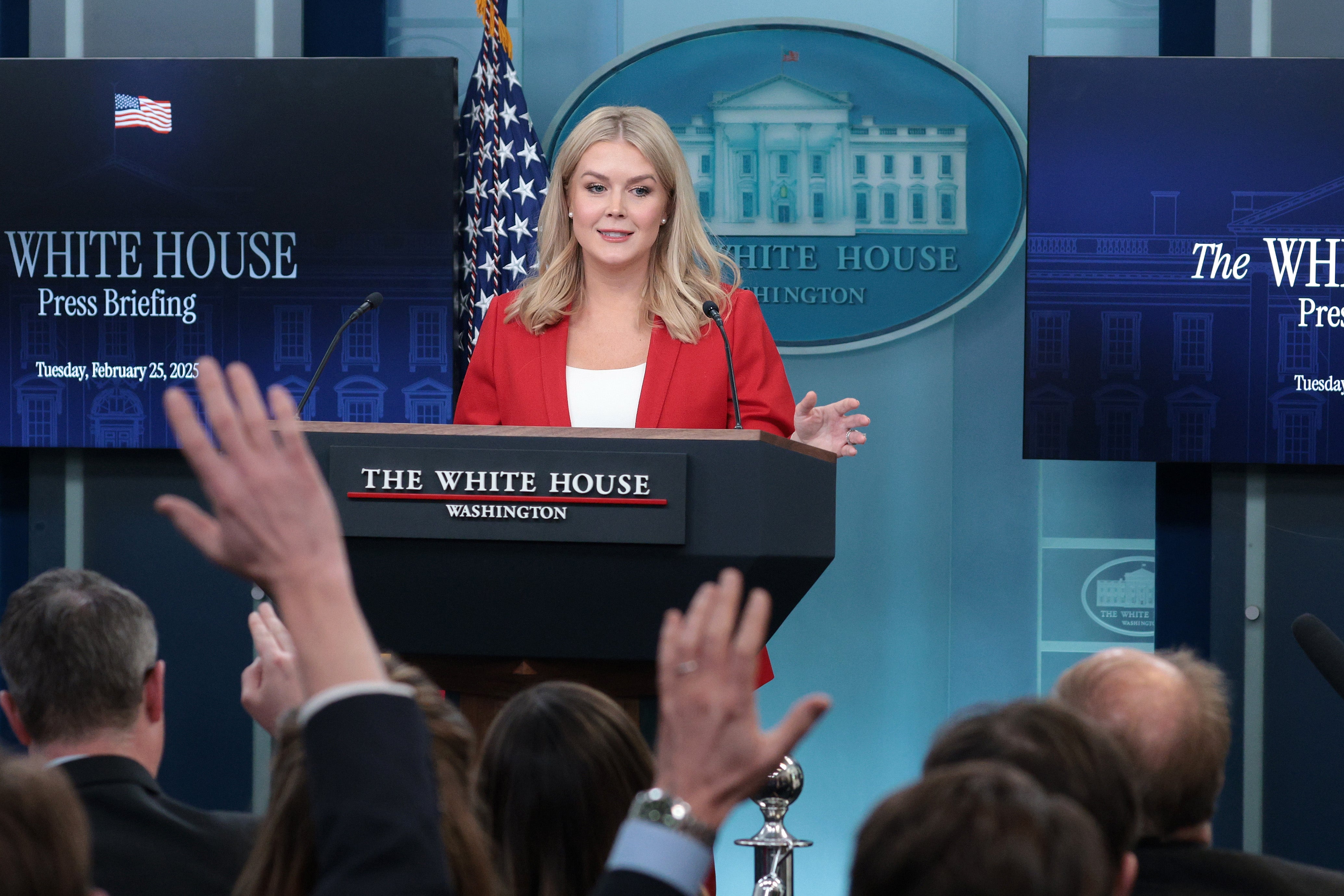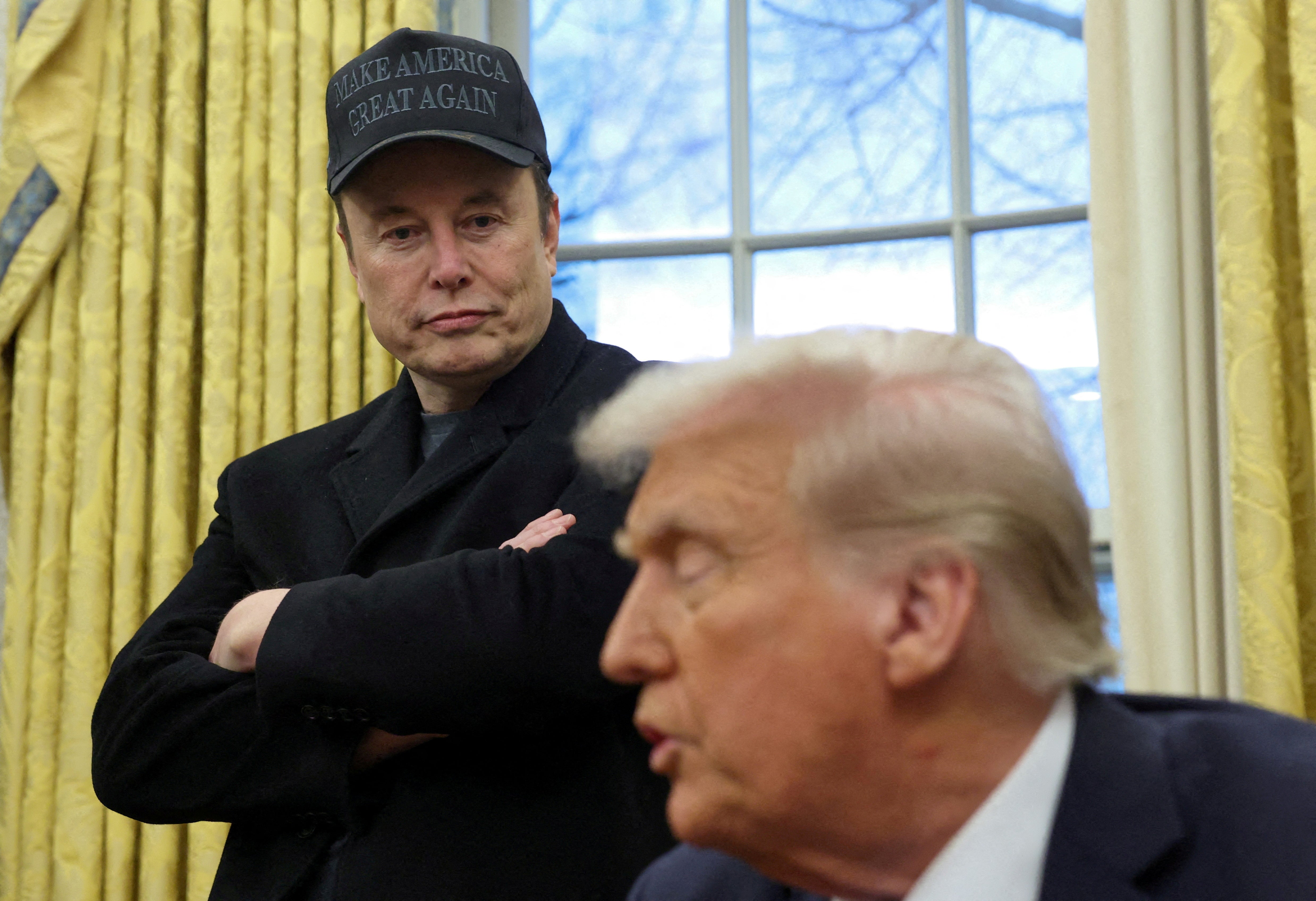After government lawyers were dragged in court for failing to name who, exactly, is leading the so-called U.S. DOGE Service while Elon Musk and his team gut federal agencies, White House press secretary Karoline Leavitt refused to give reporters a name.
“There are career officials at DOGE. There are political appointees at DOGE. I’m not going to reveal the name of that individual from this podium,” she told reporters Tuesday.
“We’ve been incredibly transparent about the way that DOGE is working,” she added.

The White House has not responded to multiple emails from The Independent seeking the name of the agency’s administrator. Legal experts and judges have argued the White House’s apparent attempt to conceal the agency’s leadership amounts to an illegal effort to dodge accountability and oversight as Musk works swiftly to recommend drastic cuts to the federal workforce and shutter entire agencies, without congressional approval.
During a hearing in Washington, D.C., on Monday, government lawyers couldn’t answer whether an administrator for the agency even exists.
“Is there an administrator of DOGE at the present time?” asked Judge Colleen Kollar-Kotelly.
“I don’t know the answer to that,” Department of Justice trial counsel Bradley Humphreys replied.
Last week, a judge in a separate case noted that DOGE is trying to “escape” the “obligations that accompany agencyhood” — including being subject to the Freedom of Information Act, the Privacy Act and the Administrative Procedures Act — “while reaping only its benefits.”
In a sworn statement in court documents, a senior White House official said that Musk is “not an employee” of DOGE and is “not the U.S. DOGE Service Administrator.
Musk is merely an employee of the White House, serving as a “senior adviser to the president,” who has “no greater authority other than other senior White House advisers [have], and has “no actual or formal authority to make government decisions himself,” White House Office of Administration director Joshua Fisher wrote on February 18.

Trump’s public remarks appear to have contradicted what his administration is telling courts and the public.
“I signed an order creating the Department of Government Efficiency, and put a man named Elon Musk in charge,” Trump said on February 19.
After taking office, Trump renamed the existing United States Digital Service to the U.S. DOGE Service, or “Department of Government Efficiency,” empowered by the president to audit federal agencies and block the transfer of congressionally approved funds in a crusade against “waste” and “fraud” with little evidence to show for it. Groups suing Musk and DOGE argue that Musk has assumed so much power that he appears to be violating the Constitution’s appointments clause, which requires senior executive branch officials to be confirmed by the Senate.
“Isn’t there some problem, if there’s no administrator, as to how USDS functions?” Judge Kollar-Kotelly asked Monday. “Who supervises them, who comes up with ideas? … Who’s telling them what to do?”
Based on the “limited record” in front of her, Kollar-Kotelly said she has “some concerns about the constitutionality of USDS structure and operations.”



